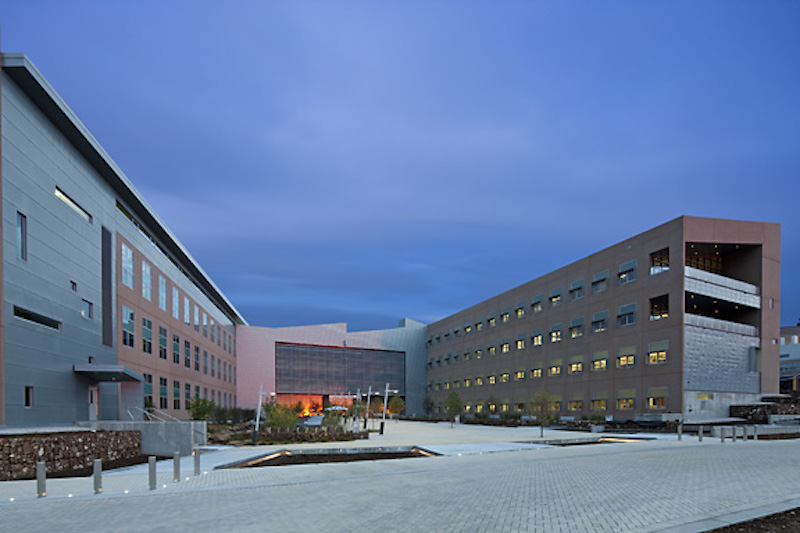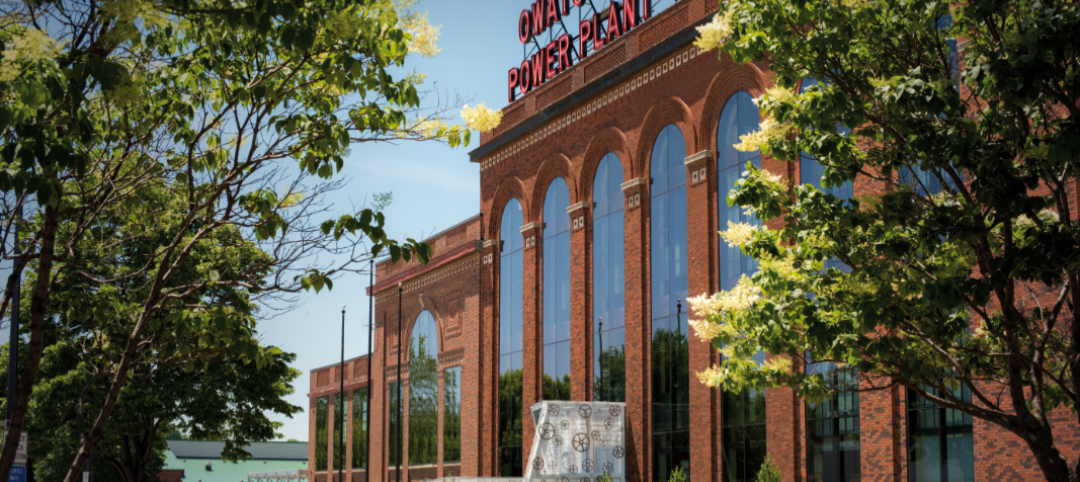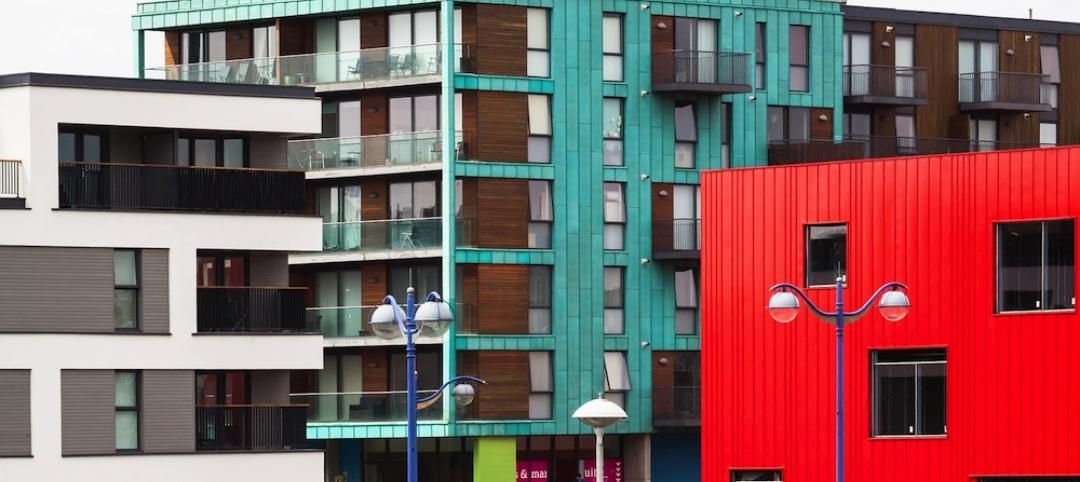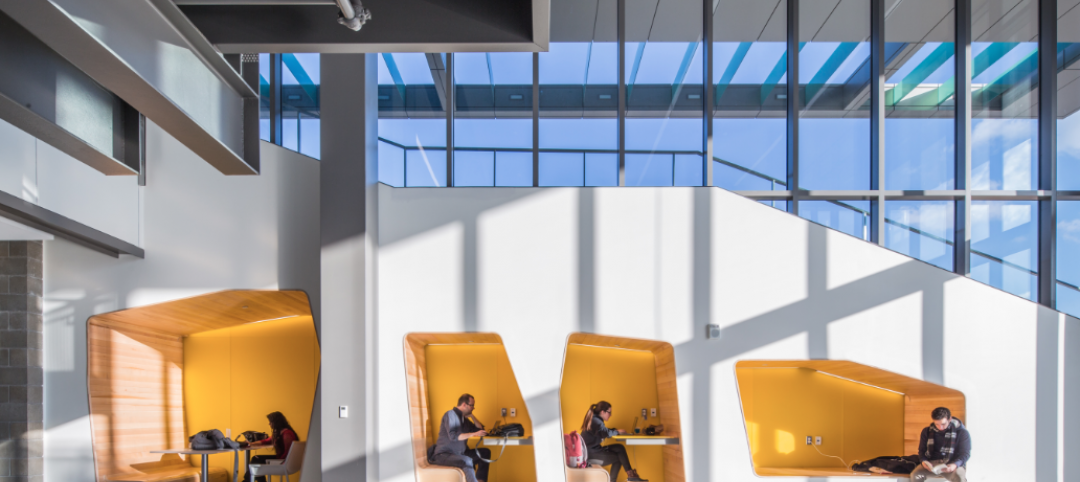Stantec, the global engineering and design firm, bolstered its position geographically and in several business sectors with its acquisition of Denver-based RNL Design, the architectural, interior, and urban design firm.
Terms of the agreement, which is expected to close next month, were not disclosed.
Josh Gould, RNL’s chairman and CEO, tells BD+C that his company decided to put itself up for sale about 18 months ago, and entered into serious discussions with Stantec at the beginning of this year.
“We’ve been autonomous for more than 60 years, so our board didn’t make this decision lightly,” he says. However, the board concluded that RNL couldn’t achieve the kind of market reach it wanted with its existing platform in a consolidating industry “that is changing rapidly,” says Gould.

Josh Gould, RNL Design's chairman and CEO, will become a sector leader in Stantec's Buildings group. Image: Stantec
RNL joins Stantec with 134 employees and offices in Denver, Los Angeles, Phoenix, Washington, D.C., and Abu Dhabi, UAE. But, says Gould, RNL “really didn’t have a lot of coverage in the United States outside of Denver. We have several national and international clients, and they needed broader coverage.”
It gets that with Stantec, whose 22,000 employees are spread over 400-plus locations and six continents. Last year, Stantec, which is based in Edmonton, Alberta, reported $4.3 billion Canadian (US$3.2 billion) in revenue, and C$130.5 million in net income.
Stantec’s business model over the past several decades has been to grow into sectors through acquisition (it’s made over 125 deals). Stantec is active in five sectors: Buildings, from which it generates about 23% of its revenue; Water, which also accounts for 23%, and became a more important part of the company after its March 2016 acquisition of Denver-based MWH Global; Infrastructure (26% of revenue), Energy and Resources (12%), and Environmental Services (16%).
RNL’s management team is staying on with Stantec, and Gould will become its Buildings Sector Leader. Eventually, he will take a leadership role in expanding Stantec’s Civic business.
“RNL has an abundant portfolio in the Civic sector, especially in public transit,” says Leonard Castro, Stantec’s Executive Vice President-Global Buildings Practice. RNL’s notable public transit projects include providing architectural, interior, and sustainable design for the 540,000-square-foot Los Angeles County Metropolitan Transportation Authority (Metro) Division 13 Bus Operations & Maintenance Facility, the first ground-up bus operations and maintenance facility for Metro in 30 years.
Castro says Stantec also saw RNL’s position in Denver and in the Middle East as plusses for the larger’s company’s growth ambitions. “Denver is a strategic market for Stantec, and it’s just a better [location] platform to service our clients” than Edmonton is. He adds that Denver is “exceptional” for its engineering schools.

One of RNL's recent projects is the Research Support Faiclity at the National Renewable Energy Lab in Colorado. Image: Courtesy of Stantec
RNL’s strengths in sustainability, resilience, and urban design should solidify Stantec’s position in each, especially given Stantec’s recent “Urban Places” initiative that targets projects related to city living, says Castro. Among RNL’s recent projects is a 190,000-sf net-zero-energy operations building on 36 acres for the Denver Water Board, and the 340,000-sf Research Support Facility at the National Renewable Energy Lab (NREL) in Golden, Colo., for which RNL provided architecture and interior design, site planning, and landscape architecture.
Stantec, says Castro, also believes that having RNL’s architectural design expertise could be a critical advantage in capturing projects for its Water division.
Stantec was MEP engineer on the NREL project, one of a half-dozen that Stantec and RNL had worked on together prior to this acquisition.
New leadership
Coincident to the Stantec-RNL transaction, Stantec announced that its president and CEO of eight years, Bob Gomes, would retire at the end of this year. Gomes, who started working for the company in 1988, oversaw Stantec’s international expansion. Between the first quarter of 2009 and the first quarter of 2017, Stantec also completed nearly 50 acquisitions, and enjoyed a revenue bounce of 229%.
Replacing Gomes, effective January 1, 2018, will be Gord Johnson, a 20-plus-year Stantec vet and, since 2015, Executive Vice President of its Infrastructure business unit.

Gord Johnson (left) will become Stantec's president and CEO on January 1, 2018, replacing Bob Gomes, who has held that position for more than eight years. Image: Stantec
In an interview with the Edmonton Sun following his appointment, Johnson pointed to the company’s diversification strategy as one of the main reasons why it has been able to weather economic shifts in different markets. “We have never been more diversified than we are now,” notes Castro.
Johnson also said Stantec, under his leadership, would look to expand its platform in places where it already has solid footprints, such as the United Kingdom, Australia, and New Zealand.
Related Stories
Architects | Aug 17, 2015
Historic power plant converted to modern offices in Minnesota
A landmark power plant in Owatonna, Minn., damaged in a 2010 flood has new life as the headquarters of Owatonna Public Utilities following a renovation by architects Leo A. Daly.
High-rise Construction | Aug 11, 2015
Calatrava's Turning Torso wins CTBUH's 10 Year Award
The 623-foot, 57-story tower was the world's first twisting skyscraper. Completed in 2005, the building, designed by Santiago Calatrava, rotates 90 degrees along its height.
Architects | Aug 11, 2015
Architecture firm compensation trending upwards
Latest AIA compensation survey finds average compensation for staff positions up 3.5 percent from early 2013
Architects | Aug 11, 2015
12 architecture schools join NCARB's 'speedy path to licensure' program
For architecture students, a license to practice may soon be available as early as graduation day
Architects | Aug 10, 2015
HDR expands its Canadian presence through merger with CEI Architecture
Public-private partnerships are expected to be one of the combined entity’s strengths.
Retail Centers | Aug 10, 2015
Walgreens’ flagship in Hawaii harkens back to the island’s fishing culture
A house where canoes were made served as the model for this drug superstore’s design.
Giants 400 | Aug 7, 2015
GOVERNMENT SECTOR GIANTS: Public sector spending even more cautiously on buildings
AEC firms that do government work say their public-sector clients have been going smaller to save money on construction projects, according to BD+C's 2015 Giants 300 report.
Giants 400 | Aug 7, 2015
K-12 SCHOOL SECTOR GIANTS: To succeed, school design must replicate real-world environments
Whether new or reconstructed, schools must meet new demands that emanate from the real world and rapidly adapt to different instructional and learning modes, according to BD+C's 2015 Giants 300 report.
Giants 400 | Aug 7, 2015
MULTIFAMILY AEC GIANTS: Slowdown prompts developers to ask: Will the luxury rentals boom hold?
For the last three years, rental apartments have occupied the hot corner in residential construction, as younger people gravitated toward renting to be closer to urban centers and jobs. But at around 360,000 annual starts, multifamily might be peaking, according to BD+C's 2015 Giants 300 report.
Giants 400 | Aug 7, 2015
UNIVERSITY SECTOR GIANTS: Collaboration, creativity, technology—hallmarks of today’s campus facilities
At a time when competition for the cream of the student/faculty crop is intensifying, colleges and universities must recognize that students and parents are coming to expect an education environment that foments collaboration, according to BD+C's 2015 Giants 300 report.

















